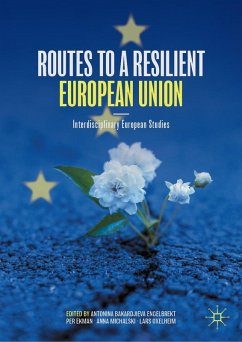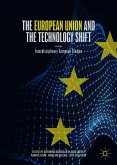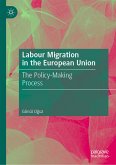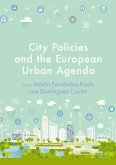"In an increasingly globalized world, the EU stands out for its economic strength and value-based social and environmental consciousness. However, our democratic system is being tested from inside and outside the union. It is therefore crucial to strengthen the EU's resilience on the internal market, security, digital transformation, and climate change. This book is therefore highly relevant. It discusses resilience from different perspectives and is a welcome contribution to debates on the subject."
- Ambassador Christian Danielsson, Head of the European Commission's Representation in Sweden, former Director-General for Neighbourhood and Enlargement Negotiations, and Deputy Secretary-General of the European Commission
"This volume offers novel, interdisciplinary analyses on the resilience of the EU facing multiple crises. It is a must-read for anyone interested in how these crises may be tackled."
- Professor Jarle Trondal, University of Oslo and University of Agder, Norway
The fifth volume of the Interdisciplinary European Studies series aims to explore the EU's pursuit of societal resilience and its role in the transition to a green economy. It brings together scholars from economics, law, and political science to provide insights related to climate change and the protection of the environment, the role of innovation in the green economy, resilience of national public health systems after the COVID-19 pandemic, regulatory resilience in the face of financial instability, and immigration. All chapters are based on up-to-date research, succinct assessment of the current state of affairs, and ongoing debates. They conclude with policy recommendations for decision-makers on European and national levels.
Antonina Bakardjieva Engelbrekt is Professor of European Law on the Faculty of Law at Stockholm University, Sweden, and Chair of the Swedish Network for European Legal Studies.
Per Ekman is Researcher in Political Science in the Department of Government, Uppsala University, Sweden.
Anna Michalski is Associate Professor in Political Science in the Department of Government, Uppsala University, Sweden, and Associate Senior Fellow at the Swedish Institute of International Affairs.
Lars Oxelheim is Professor of International Business and Finance at the University of Agder, Kristiansand, Norway and the Research Institute of Industrial Economics, Stockholm, Sweden. Legal Preconditions for an Environmentally Sustainable European Union" is available open access under a Creative Commons Attribution 4.0 International License via link.springer.com.
- Ambassador Christian Danielsson, Head of the European Commission's Representation in Sweden, former Director-General for Neighbourhood and Enlargement Negotiations, and Deputy Secretary-General of the European Commission
"This volume offers novel, interdisciplinary analyses on the resilience of the EU facing multiple crises. It is a must-read for anyone interested in how these crises may be tackled."
- Professor Jarle Trondal, University of Oslo and University of Agder, Norway
The fifth volume of the Interdisciplinary European Studies series aims to explore the EU's pursuit of societal resilience and its role in the transition to a green economy. It brings together scholars from economics, law, and political science to provide insights related to climate change and the protection of the environment, the role of innovation in the green economy, resilience of national public health systems after the COVID-19 pandemic, regulatory resilience in the face of financial instability, and immigration. All chapters are based on up-to-date research, succinct assessment of the current state of affairs, and ongoing debates. They conclude with policy recommendations for decision-makers on European and national levels.
Antonina Bakardjieva Engelbrekt is Professor of European Law on the Faculty of Law at Stockholm University, Sweden, and Chair of the Swedish Network for European Legal Studies.
Per Ekman is Researcher in Political Science in the Department of Government, Uppsala University, Sweden.
Anna Michalski is Associate Professor in Political Science in the Department of Government, Uppsala University, Sweden, and Associate Senior Fellow at the Swedish Institute of International Affairs.
Lars Oxelheim is Professor of International Business and Finance at the University of Agder, Kristiansand, Norway and the Research Institute of Industrial Economics, Stockholm, Sweden. Legal Preconditions for an Environmentally Sustainable European Union" is available open access under a Creative Commons Attribution 4.0 International License via link.springer.com.
Dieser Download kann aus rechtlichen Gründen nur mit Rechnungsadresse in A, B, BG, CY, CZ, D, DK, EW, E, FIN, F, GR, HR, H, IRL, I, LT, L, LR, M, NL, PL, P, R, S, SLO, SK ausgeliefert werden.









